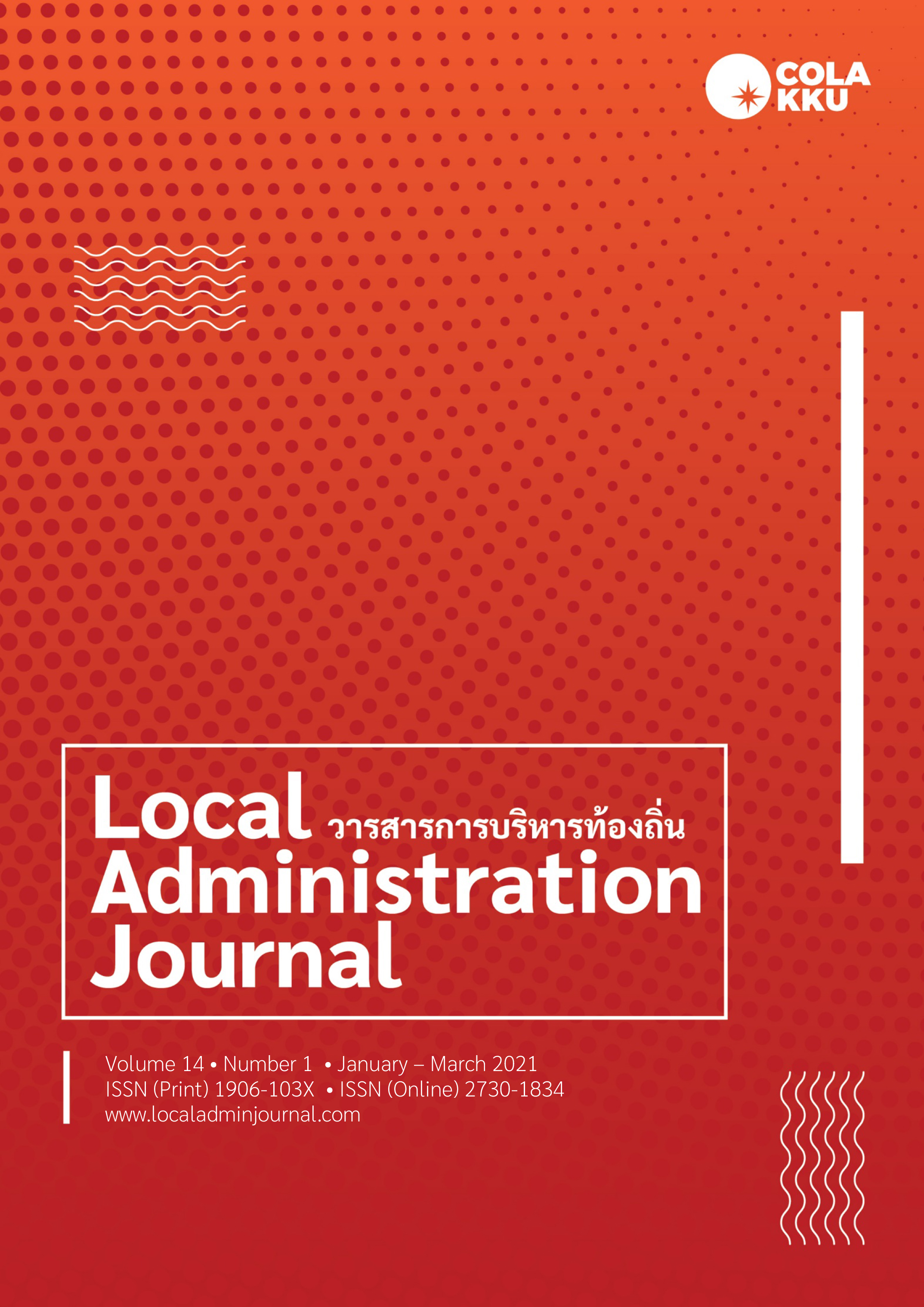Analyses of Hotel Tax Revenue Potentials: A Case of Provincial Administrative Organizations
Keywords:
Hotel taxes, Tax revenue estimation, Provincial administrative organizationAbstract
This paper explores the necessities and techniques for the estimation of hotel tax revenues for Provincial Administrative Organizations (PAO). This would be advantageous and an accurate method to assist in the hotel tax collection and help to reduce tax revenue losses for the PAO. Findings from the estimations of both macro- and micro- (provincial level) data indicate that the hotel taxes range from 964 to 11,739 million baht during 2017-2018 (B.E. 2560-2561), or about 6,352 million baht on average. However, the actual hotel tax collection was 533 million baht during the same period. This study indicates that all parties concerned with hotel tax collection systems should pay close attention to the improvement of administrative procedures and hotel databases so that tax revenue losses and collection loopholes are be minimized.
References
วีระศักดิ์ เครือเทพ และคณะ. (2557). 15 ปีการกระจายอำนาจของไทย สรุปผลการวิจัยและข้อเสนอแนะเชิงนโยบาย. กรุงเทพฯ: โรงพิมพ์แห่งจุฬาลงกรณ์มหาวิทยาลัย.
วีระศักดิ์ เครือเทพ และคณะ. (2563). การพัฒนาระบบบริหารจัดเก็บรายได้ขององค์กรปกครองส่วนท้องถิ่น (รายงานวิจัย). กรุงเทพฯ: สำนักงานคณะกรรมการส่งเสริมวิทยาศาสตร์ วิจัยและนวัตกรรม.
สกนธ์ วรัญญูวัฒนา. (2556). การกระจายอำนาจการคลังสู่องค์กรปกครองส่วนท้องถิ่น : แนวคิดและการปฏิบัติกรณีศึกษาประเทศไทย. กรุงเทพฯ: สำนักพิมพ์มหาวิทยาลัยธรรมศาสตร์
สถาบันวิจัยและให้คำปรึกษาแห่งมหาวิทยาลัยธรรมศาสตร์. (2552). รายงานผลการศึกษาความก้าวหน้าของการกระจายอำนาจในประเทศไทย. กรุงเทพฯ: สถาบันวิจัยและให้คำปรึกษาแห่งมหาวิทยาลัยธรรมศาสตร์.
อรนันท์ กลันทปุระ. (2547). เศรษฐกิจการเมืองว่าด้วยการต่อต้านภาษี : กรณีศึกษาการต่อต้านค่าธรรมเนียมบำรุงองค์การบริหารส่วนจังหวัดจากผู้พักในโรงแรม. วิทยานิพนธ์ปริญญารัฐศาสตรดุษฎีบัณฑิต สาขาวิชารัฐศาสตร์, จุฬาลงกรณ์มหาวิทยาลัย.
ภาษาอังกฤษ
Bland, R. L. (2005). A Revenue Guide for Local Government (2nd ed.). Washington, D.C.: International City/County Management Association.
Bonham, C. & Cangnes, B. (1996). Intervention Analysis with Cointegrated Time Series: The Case of the Hawaii Hotel Room Tax. Applied Economics, 28, 1281-1293.
Cho, I. G. (2018). Fiscal Decentralization in Korea. Asian Education and Development Studies, 7(3), 279-290.
Hofman, B. & Kaiser, K. (2002). The Making of the Big Bang and its Aftermath: A Political Economy Perspective. The Conference entitled Can Decentralization Help Rebuild Indonesia? Atlanta. Andrew Young School of Policy Studies, Georgia State University.
Translated References
Gluntapura, O. (2004). Political Economy of Tax Revolts: A Case of Hotel Tax for Provincial Administrative Organization. Doctoral Dissertation in Political Sciences, Chulalongkorn University. (in Thai)
Krueathep, W. et al. (2014). Fifteen Years Review of Thai Decentralization Research Summary and Policy Recommendations. Bangkok: Chulalongkorn University Press. (in Thai)
Krueathep, W. et al. (2020). Enhancing Capabilities of Local Revenue Administration in Thailand (Research Report). Bangkok: Thailand Science Research Institute and consultancy, Thammasat University and Innovation. (in Thai)
Research Institute and consultancy, Thammasat University. (2009). Monitoring the Progress of Thai Decentralization (Research Report). Bangkok: Research Institute and consultancy, Thammasat University. (in Thai)
Waranyuwatthana, S. (2013). Fiscal Decentralization to Local Government: Concepts and Practices in Thailand. Bangkok: Thammasat University Press. (in Thai)
Downloads
Published
How to Cite
Issue
Section
License
Copyright (c) 2021 Local Administration Journal

This work is licensed under a Creative Commons Attribution-NonCommercial-NoDerivatives 4.0 International License.
The copyright of all articles published in the Local Administration Journalis owned by the College of Local Administration, Khon Kaen University.



